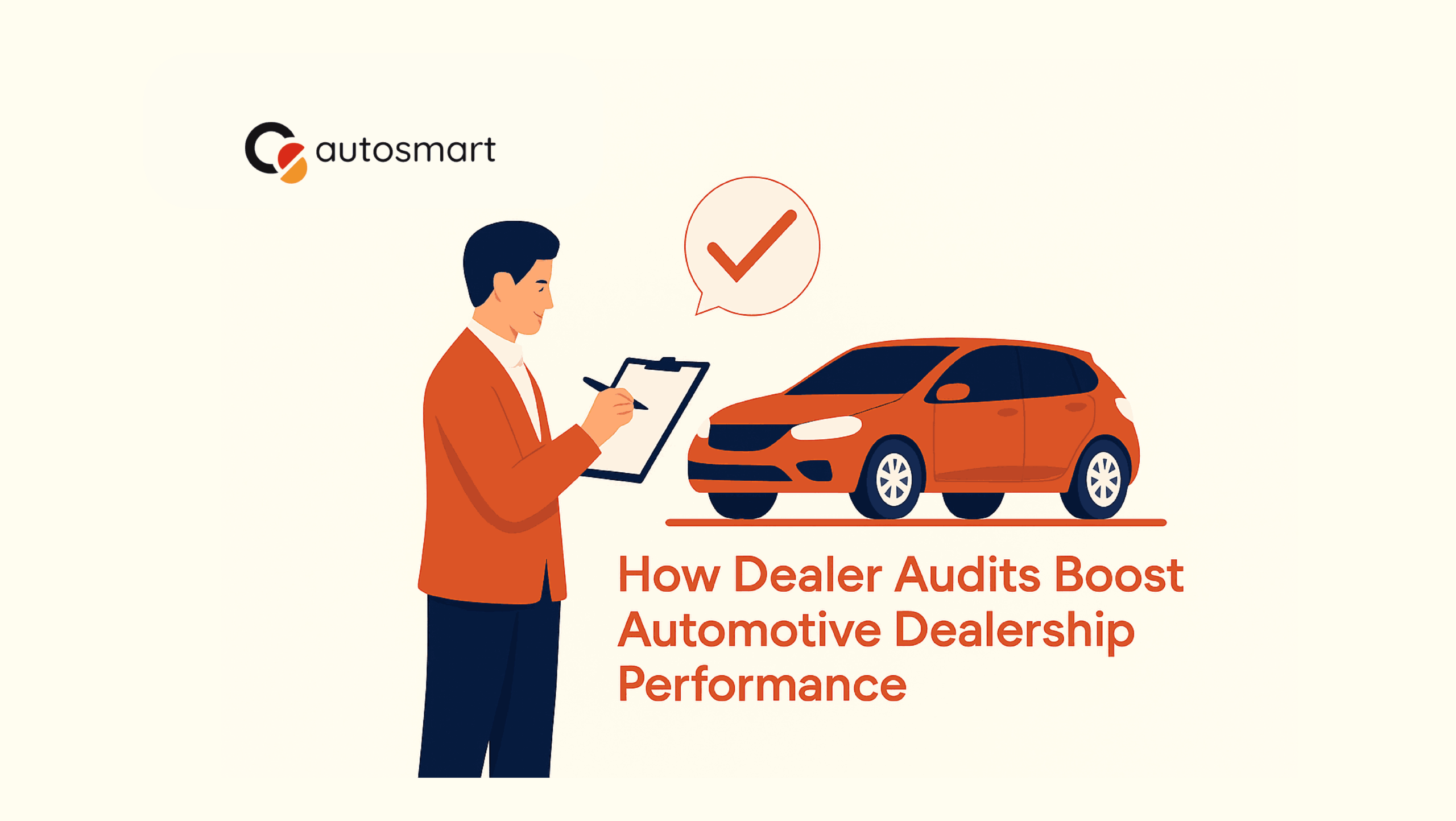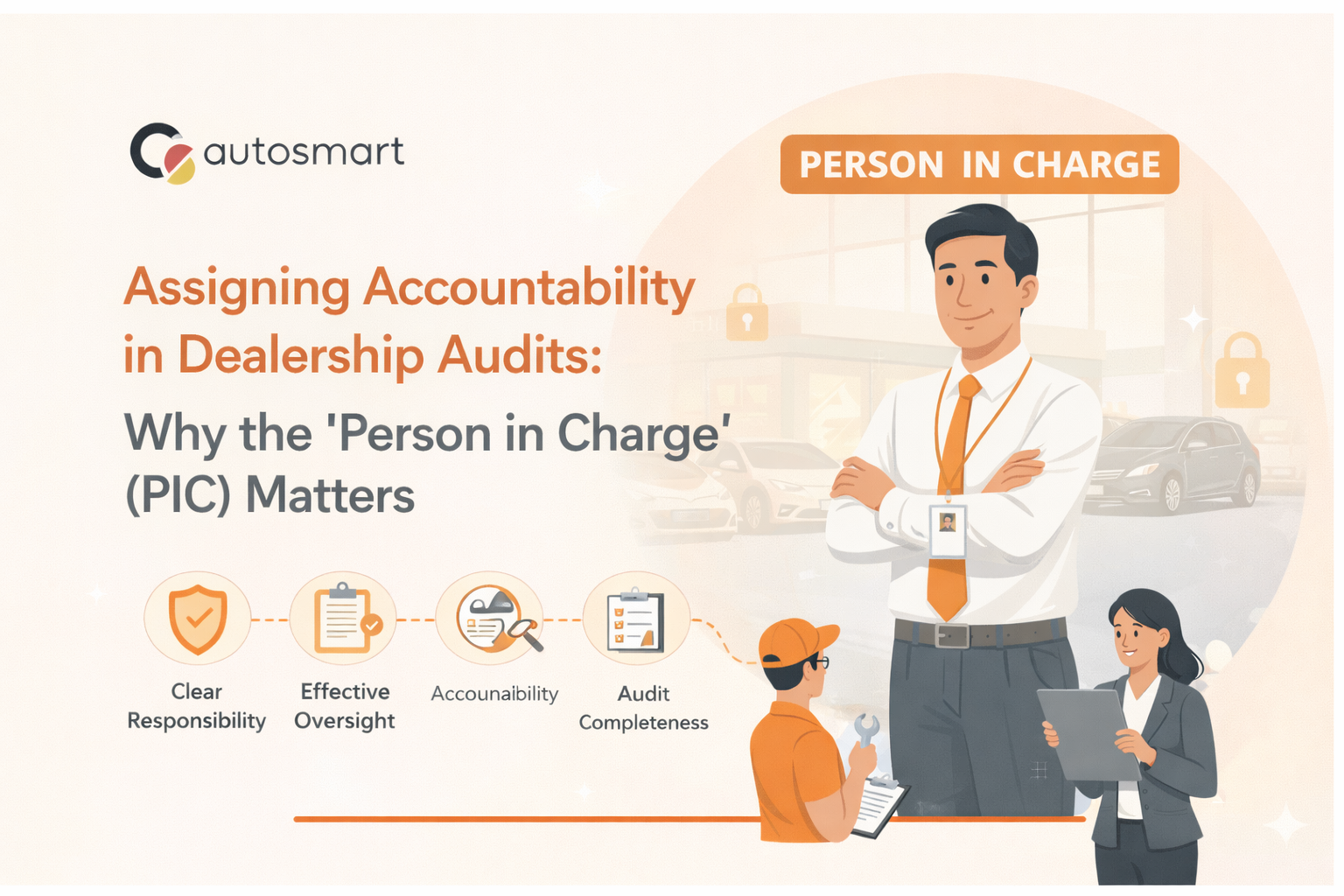With the automotive industry evolving at a faster rate, dealerships face intense pressure to deliver top-notch service, meet OEM standards, and stay ahead of competitors. But, without regular performance assessments, maintaining consistency across dealership networks becomes a serious challenge.
That’s where dealer audits come in. It provides a structured, objective approach to evaluate operations, avoid inefficiencies, and ensure alignment with manufacturer expectations.
With the right tools, such as dealer audit software, audits can go beyond compliance checklists to become powerful drivers of growth and customer satisfaction.
In this blog, we’ll break down what dealer audits are, the different types, common dealership challenges, and how AutoSmart Audit can simplify and scale the entire process.
What Are Dealer Audits?
A dealer audit is a structured evaluation conducted by automotive OEMs (Original Equipment Manufacturers) to assess a dealership’s operations across various domains: sales, service, compliance, finance, and more. The main goal is to ensure every dealership operates efficiently, ethically, and consistently with the brand’s standards.
These audits not only keep dealers accountable but also offer OEMs critical visibility into how their brand is being represented on the ground.
Common Dealership Challenges And How Dealer Audits Solve Them
Running a dealership is complex. Here are some real-world challenges dealers often face, and how audits can help overcome them:

| Pain Point | How Dealer Audits Help |
| Lack of consistency across locations | Identifies operational gaps and aligns practices with brand standards |
| Missed revenue opportunities in sales or service | Highlights inefficiencies and provides actionable insights |
| Difficulty tracking compliance | Regular audits ensure adherence to legal and OEM requirements |
| Inaccurate warranty claims or financial records | Verifies documentation to prevent fraud |
| Customer dissatisfaction due to service delays | Pinpoints service bottlenecks and improves response times |
Types of Automotive Dealer Audits
1. Compliance Audits
These ensure dealers are adhering to OEM policies, safety regulations, and legal standards.
2. Sales Audits
Sales audits analyze performance metrics, inventory accuracy, and customer interaction quality. They help dealerships align inventory with demand and optimize the sales process.
3. Service & Warranty Audits
Here, OEMs assess the quality and accuracy of warranty claims and service operations. These audits ensure customers receive timely, standardized service, building long-term trust in the brand.
4. Financial Audits
These focus on verifying financial integrity, catching inconsistencies, and reducing fraud risk. They also assist in strategic budgeting and forecasting.
How Dealer Audits Improve Performance
Audits are about building better businesses. Here’s how they elevate dealership performance:
- Uncover Hidden Inefficiencies: Audit reports highlight areas for improvement that may go unnoticed in daily operations.
- Ensure Brand Consistency: With standardized processes, every customer gets a consistent experience, no matter which dealership they visit.
- Enhance Customer Experience: By improving service and sales operations, audits enhance customer satisfaction.
- Support Data-Driven Decisions: Data collected during audits provides a foundation for strategic planning and performance optimization.
Dealer Visit Reports: Turning Insights into Action
A dealer visit report is a detailed summary of findings, actionable recommendations, and performance benchmarks.
Key Features:
- Comprehensive Audit Records: Tracks everything from compliance violations to missed service KPIs.
- Actionable Recommendations: Provides guidance to correct identified issues (e.g., training for underperforming sales staff).
- Progress Tracking: Allows OEMs and dealers to measure improvement over time and benchmark performance against peers.
The Role of Dealer Audit Management Software in Modern Auditing
Manual audits take time, cause error, and are hard to scale. That’s where dealer audit software like AutoSmart Audit makes a difference.
How It Solves Common Problems:
- Manual data entry is slow and unreliable. Automated data collection ensures speed and accuracy.
- Delayed insights hinder timely action. Real-time analytics result in faster decision-making and issue solving.
- One-size-fits-all reports miss crucial details. Customizable reporting tailors reports to specific dealership needs.
- Limited visibility across multiple dealerships. Cloud-based dashboards offer centralized access to audit results from anywhere.
AutoSmart Audit simplifies complex audit workflows, enabling OEMs and dealers to audit smarter, not harder.
Key Takeaways
Here’s why dealer audits are indispensable:
- Dealer audits ensure operational excellence and brand consistency.
- They solve real challenges, ranging from compliance gaps to inefficient service.
- Dealer visit reports transform findings into tangible action plans.
- Using audit software like AutoSmart Audit enhances audit accuracy, efficiency, and scalability.
- Regular audits support better decision-making, optimized dealership performance, and improved customer satisfaction.
Conclusion
In a competitive market, dealer audits are strategic necessities. They offer OEMs and dealerships the clarity needed to fine-tune operations, deliver better experiences, and ensure long-term growth.
When combined with the right technology, such as AutoSmart Audit’s intelligent auditing platform, audits become a proactive tool for success, fueling smarter decisions and stronger dealership networks.

Naseef Umar is the Founder & CEO of AutoSmart Technology, a SaaS platform digitizing audits for OEMs, distributors, and dealer networks. With prior experience at Toyota (Abdul Latif Jameel) and a background in IT and Industrial Management, he writes about audits, operational discipline, and building SaaS products for enterprise customers across markets.




